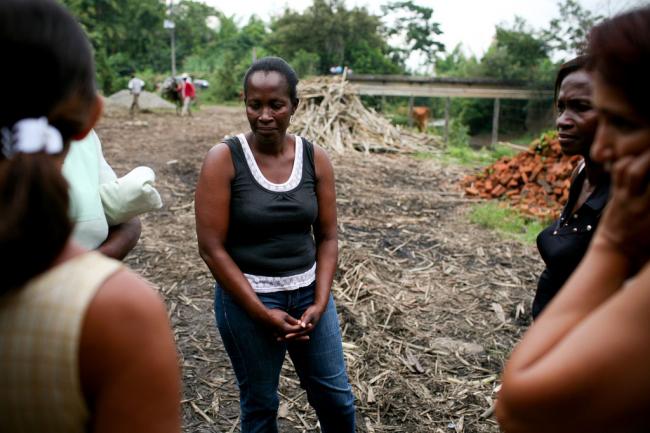
Gender equality, women's empowerment central to Colombian peace process – UN officials
On 24 July, the two sides committed to ensure that one of the agreement's fundamental objectives will be to promote gender equality and the empowerment of women. Since 2012, the FARC and the Colombian Government have been in talks hosted in Havana, seeking to end a 51-year conflict. Throughout the discussions, negotiators have reached agreement on key issues such as political participation, land rights, illicit drugs and victims' rights and transitional justice.
“This is a moment of great hope,” said Phumzile Mlambo-Ngcuka, Executive Director of the UN Entity for Gender Equality and the Empowerment of Women (UN Women), and Zainab Hawa Bangura, Special Representative of the UN Secretary-General on Sexual Violence in Conflict, in a joint statement.
“It renews our confidence in diplomacy, and strengthens our belief that other long-standing conflicts, no matter how complex and protracted, can follow Colombia's example and 'sign up' for peace,” they added.
They hailed the work of the Havana Peace Talks Table and its Gender sub-Commission, a unique mechanism in the history of conflict resolution and composed of representatives of the Government and the FARC, which has brought women's voices into the peace process.
The gender provisions of the agreement ensure that women's participation and empowerment are key to main aspects like rural development, political participation and eradication of illicit drugs. The Gender sub-Commission has also addressed the rights of women victims of the conflict to truth, justice, reparation and guarantees of non-repetition, as well as their rights in provisions for the end of the conflict.
Highlighting, in particular, the plight of the victims of sexual violence, Mlambo-Ngcuka and Bangura said: “In Colombia, the silence around sexual violence in the conflict has been broken, with a firm commitment to afford survivors the justice and support that they deserve.”
They added that they looked forward to the institutionalization of the Gender sub-Commission in post-conflict arrangements, as a guarantor for implementation of the commitments that have been made.
“This peace process represents an historic opportunity to transform the status of women in Colombian society through fundamental structural change,” they said while stressing that, “We must now ensure that women are included in all aspects of decision-making, with specific provisions for gender balance, and in power-sharing arrangements.”
Noting that the peace process had already reduced the humanitarian impact of the armed conflict,
they said that the dividends of the peace negotiations will help to build crucial momentum for the vote through which the Colombian people will decide on the agreement's ratification.
“For transformational change, and for peace to take root, it will be essential to secure the broad participation of women and men, and of all civil society,” they concluded, reaffirming their commitment to continue stand with and support Colombia and its people on their journey toward lasting peace.
Photo: Charlotte Kesl/World Bank
Support Our Journalism
We cannot do without you.. your contribution supports unbiased journalism
IBNS is not driven by any ism- not wokeism, not racism, not skewed secularism, not hyper right-wing or left liberal ideals, nor by any hardline religious beliefs or hyper nationalism. We want to serve you good old objective news, as they are. We do not judge or preach. We let people decide for themselves. We only try to present factual and well-sourced news.







